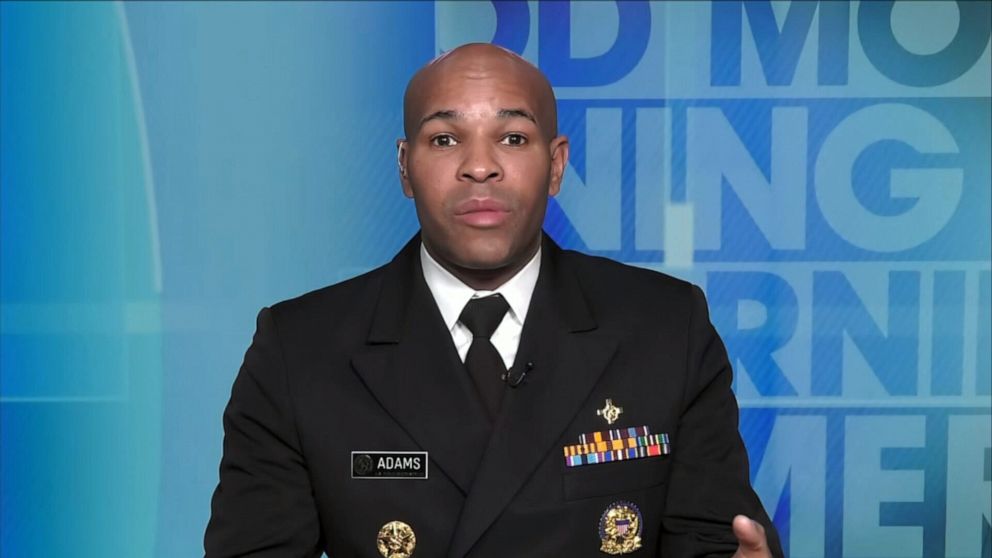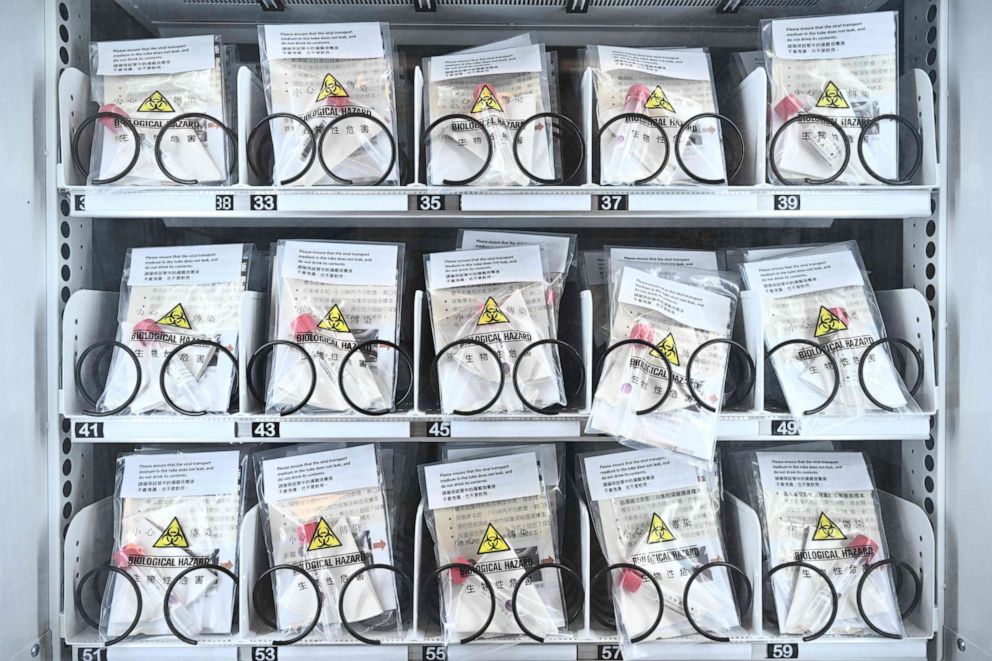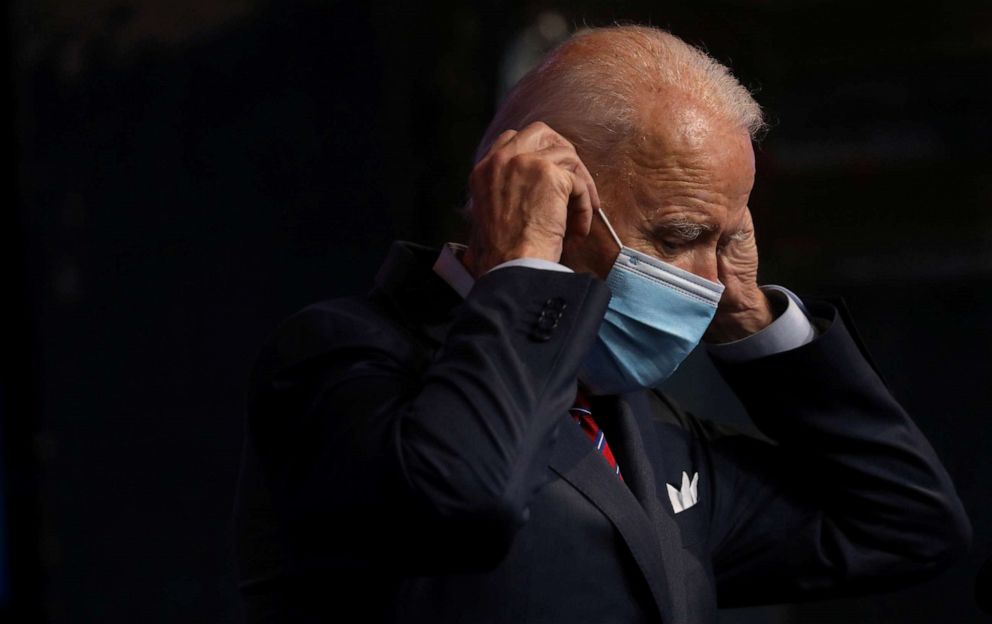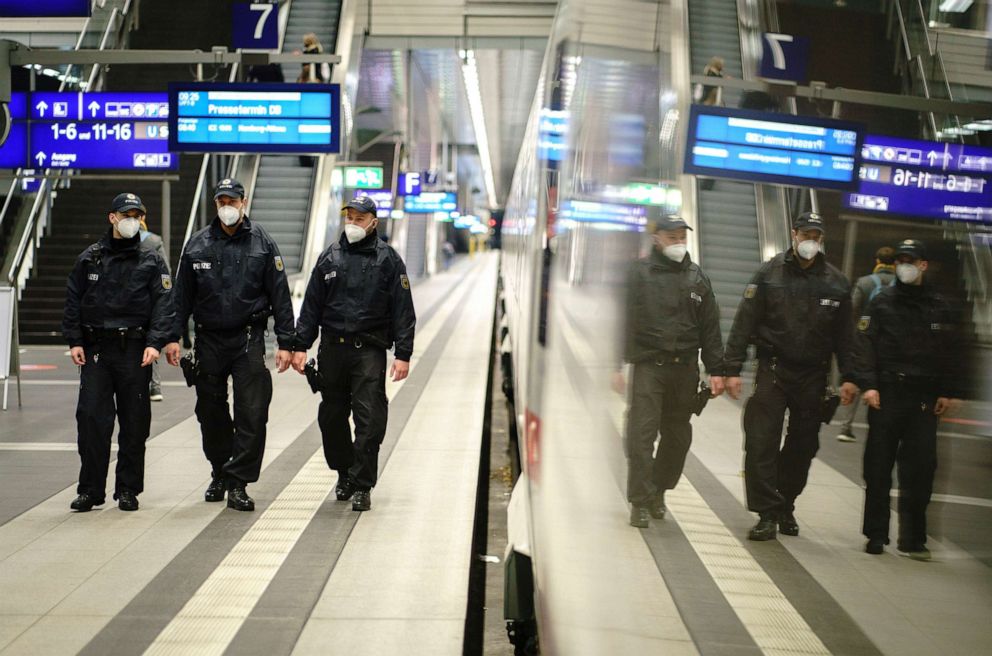'My colleagues are dog-tired,' US surgeon general says in plea to Americans
U.S. Surgeon General Jerome Adams urged people to take the coronavirus pandemic seriously and follow public health guidelines as infections and hospitalizations soar across the country.
"I want the American people to know this virus is incredibly unforgiving, cases are going up, hospitalizations are going up, my colleagues are dog-tired and we need you to hang on just a little bit longer because we've got vaccines coming but we want as many people to be alive to get them as possible and a lot of that is going to depend on your behavior," Adams told ABC News chief anchor George Stephanopoulos in an interview Monday on "Good Morning America."
Although "more people than ever are wearing masks," Adams said he's "very" concerned by the number of people who still "don't understand how much spread is occurring by people who don't have symptoms."
About 20 million "full doses" of COVID-19 vaccines will be available by the end of the year, according to Adams, who urged every American to be immunized against the virus as soon as a vaccine is authorized and made available.
"It's a way that we can ultimately end this pandemic, but it doesn't matter if people won't get the vaccination," the surgeon general said. "We know that vaccine levels are only about 50% for adults for flu and they go down to about 40% for African-Americans."

Adams said he is working with historically black colleges and universities as well as faith communities to bolster vaccine confidence among all populations. The White House is also hosting a vaccine summit Tuesday, he said.
"One thing you can all do right now, it's national flu immunization week, get your flu shot because half a million people were hospitalized last year with the flu," Adams said. "We simply can't afford for that to happen this year with hospitals being overwhelmed."
The surgeon general said the current surge in infections across the country "is different than earlier surges," because it's not about a lack of masks or personal protective equipment, nor is it due to a lack of testing.
"It's really about health care capacity, and certain places are just being overwhelmed," he said. "So we know that we can actually help them with their health care capacity by immunizing their health care staff. We're going to leave it up to the states, but we're going to give them guidance."
Adams noted it's also important to vaccinate those who are most likely to die from COVID-19.
"We know that 40 to 50% of the deaths are occurring in people who are in longterm care facilities who are older," he said.







